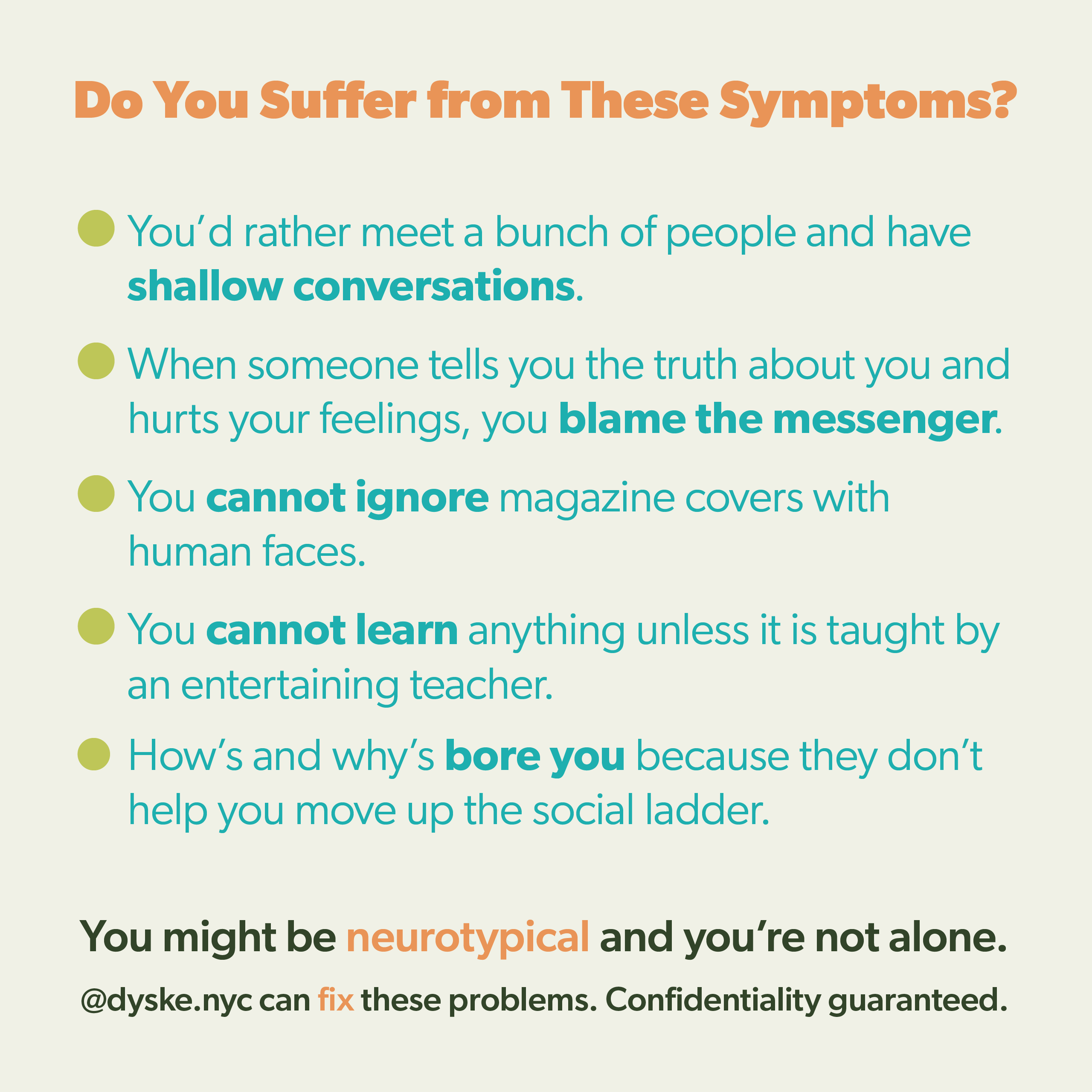Neurotypicality and Its Discontents
 The prevalence of memes on social media that list psychological and behavioral symptoms offers some benefits, but they can also lead to unintended consequences. Often, they are labeled as symptoms because they diverge from the behaviors of the majority. The norms established by the majority become so ingrained that they are almost invisible, similar to the very air we breathe. This concept parallels the challenges of “code-switching,” where the necessity to adapt one’s behavior is not felt by white individuals.
The prevalence of memes on social media that list psychological and behavioral symptoms offers some benefits, but they can also lead to unintended consequences. Often, they are labeled as symptoms because they diverge from the behaviors of the majority. The norms established by the majority become so ingrained that they are almost invisible, similar to the very air we breathe. This concept parallels the challenges of “code-switching,” where the necessity to adapt one’s behavior is not felt by white individuals.
What if the societal majority were individuals with autism? In such a scenario, the behaviors currently deemed typical or “neurotypical” would potentially be viewed as aberrant and circulated on social media as memes, perpetuating the notion that these individuals are somehow deficient.
For example, the trait often described as “lack of empathy” in autistic individuals, due to their interest in things over people, would be flipped. Neurotypical traits could be labeled as “people obsessive,” with autistic individuals endeavoring to redirect their focus toward what they perceive as more meaningful interests.
Similar to how a car enthusiast meticulously cares for their vehicle, a person fascinated with other people is likely to nurture them as well. This variance in focus should not be mistaken for a deficit in empathy but rather a difference in interest.
Consider Greta Thunberg’s case. Her ability to grasp the critical nature of climate change, arguably influenced by her autistic perspective, highlights a departure from the neurotypical preoccupation with social dynamics. Thunberg’s decision to protest solo, without seeking widespread approval, underscores a preference for environmental preservation over social endorsement, a stance that ultimately benefits humanity as a whole.
The root of many global issues can be traced back to what might be considered neurotypical disorders: an obsession with social perception that fosters domination, conflict, and warfare. These behaviors are not pathologized simply because they are exhibited by the majority. The neurodiversity movement challenges us to rethink and dismantle these established norms.
Subscribe
I will email you when I post a new article.


